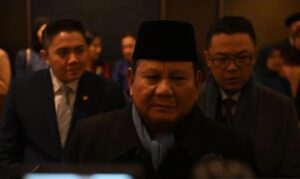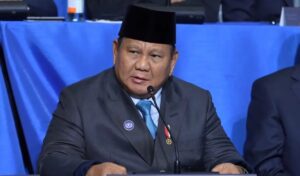Indonesia’s Parliament Approves Amendments to National Defense Forces Law

Jakarta, The Gulf Observer: Indonesia’s House of Representatives (DPR) approved the Bill on Amendments to Law Number 34 of 2004 on the Indonesian National Defense Forces (TNI) into law on Thursday during a plenary session at the Parliament Complex. The session, presided over by DPR Speaker Puan Maharani, saw unanimous approval from legislators.
Defense Minister Sjafrie Sjamsoeddin, TNI Commander General Agus Subiyanto, and State Secretary Minister Prasetyo Hadi were among the government officials in attendance.
Speaker Maharani highlighted that the amended law introduces changes to four key aspects: Article 3 concerning TNI’s position, Article 7 regarding non-combat operations, Article 47 on civil roles available to active TNI personnel, and Article 53 relating to military retirement age.
The revised Paragraph 2 of Article 3 emphasizes “strategic planning” by defining the Defense Ministry’s role in coordinating TNI’s defense strategy and administrative support. However, Paragraph 1 of Article 3, which affirms the president’s authority over TNI’s deployment and use of force, remains unchanged.
Under the amended Article 7, TNI’s non-combat duties expand from 14 to 16, incorporating responsibilities in mitigating cyber threats and protecting Indonesians and national interests abroad.
The updated Article 47 increases the number of civil roles available to active-duty military officers from 10 to 14, provided such appointments are based on government requests and administrative regulations. TNI officers seeking civilian government roles beyond these designated positions must resign or retire from military service.
Additionally, amendments to Article 53 raise the retirement age across all ranks. Previously, enlisted and non-commissioned officers (NCOs) retired at 53, while high-ranking officers retired at 58. Under the new law, the retirement age is now 55 for enlisted and NCOs, 58 for junior and senior commissioned officers, and 63 to 65 for high-ranking officers.
DPR’s Commission I Chair, Utut Adianto, reported on the bill’s progress before its final approval, ensuring that the amendments would not undermine civil supremacy over the military.
“The changes will not affect the values of democracy, civil supremacy, human rights, or adherence to national and international statutes,” Adianto stated.
The passage of this law marks a significant update to Indonesia’s defense policy, addressing evolving security challenges while maintaining the balance between military and civil authority.


